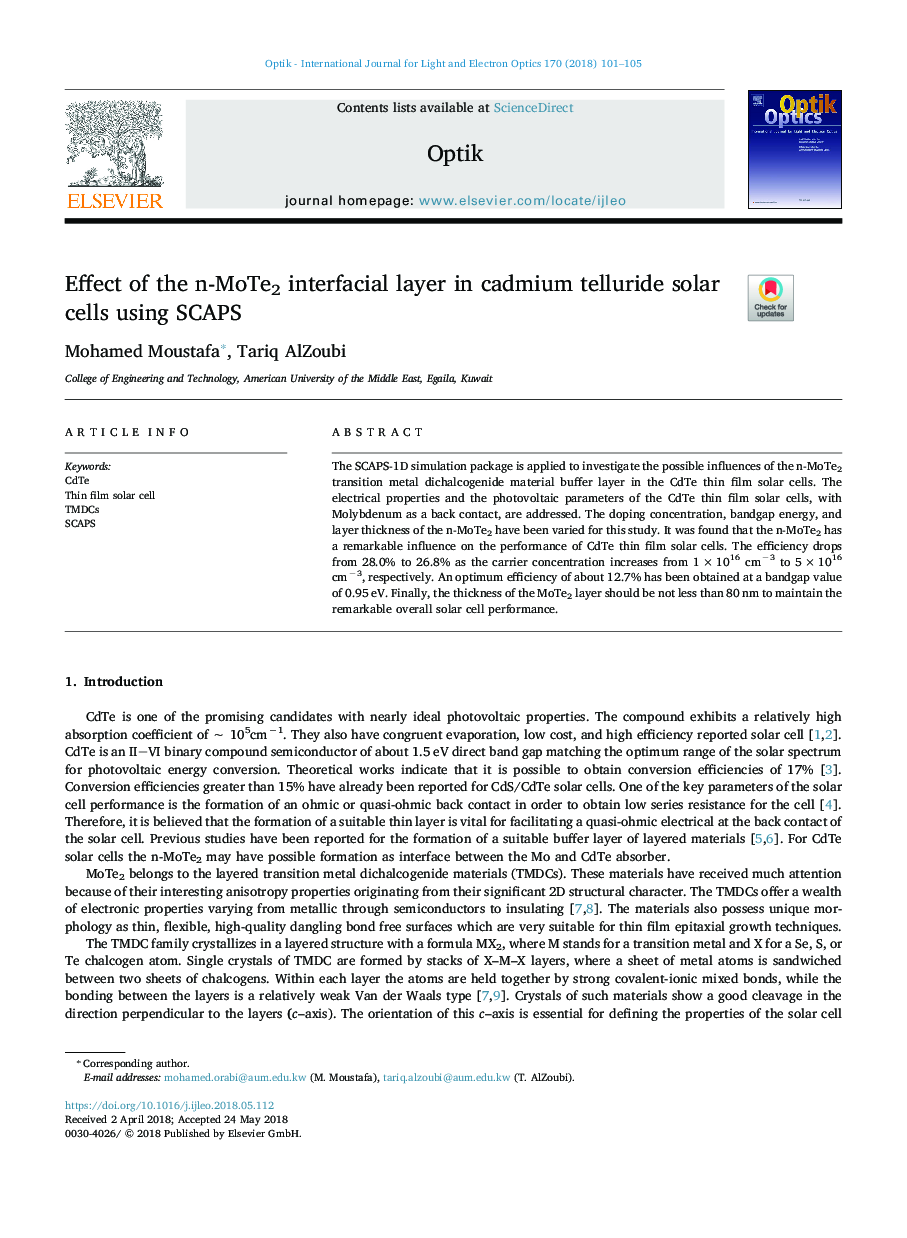| Article ID | Journal | Published Year | Pages | File Type |
|---|---|---|---|---|
| 7223233 | Optik - International Journal for Light and Electron Optics | 2018 | 5 Pages |
Abstract
The SCAPS-1D simulation package is applied to investigate the possible influences of the n-MoTe2 transition metal dichalcogenide material buffer layer in the CdTe thin film solar cells. The electrical properties and the photovoltaic parameters of the CdTe thin film solar cells, with Molybdenum as a back contact, are addressed. The doping concentration, bandgap energy, and layer thickness of the n-MoTe2 have been varied for this study. It was found that the n-MoTe2 has a remarkable influence on the performance of CdTe thin film solar cells. The efficiency drops from 28.0% to 26.8% as the carrier concentration increases from 1â¯Ãâ¯1016 cmâ3 to 5â¯Ãâ¯1016 cmâ3, respectively. An optimum efficiency of about 12.7% has been obtained at a bandgap value of 0.95â¯eV. Finally, the thickness of the MoTe2 layer should be not less than 80â¯nm to maintain the remarkable overall solar cell performance.
Keywords
Related Topics
Physical Sciences and Engineering
Engineering
Engineering (General)
Authors
Mohamed Moustafa, Tariq AlZoubi,
